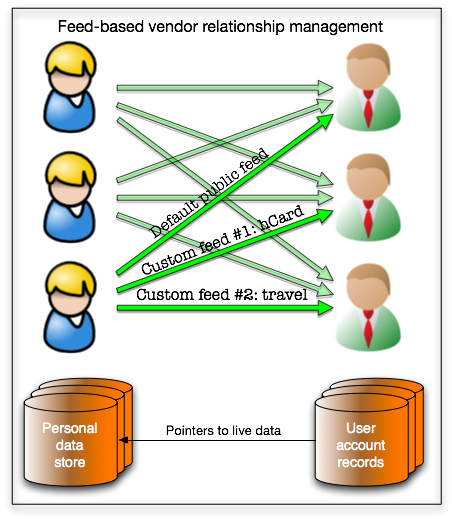Google and Microsoft Look to Change Health Care is an interesting piece by Steve Lohr in today’s New York Times. (In the print edition the headline reads “Dr. Google and Dr. Microsoft”.) It begins,
In politics, every serious candidate for the White House has a health care plan. So too in business, where the two leading candidates for Web supremacy, Google and Microsoft, are working up their plans to improve the nation’s health care.
By combining better Internet search tools, the vast resources of the Web and online personal health records, both companies are betting they can enable people to make smarter choices about their health habits and medical care.
“What’s behind this is the mass consumerization of health information,” said Dr. David J. Brailer, the former health information technology coordinator in the Bush administration, who now heads a firm that invests in health ventures.
Naturally the piece frames health care as a fight between giants. Even the Larger Context is cast in terms of Big Interests:
It is too soon to know whether either Google or Microsoft will make real headway. Health care, experts note, is a field where policy, regulation and entrenched interests tend to slow the pace of change, and technology companies have a history of losing patience.
I suggest we need to lose patience even faster than the tech companies, and come up with solutions that are not framed in terms of big company (or big entrenched interest) sports, but rather in solving a single problem from a single angle.
That problem is patient records, and that angle is the patient.
The patient needs to be the point of integration for their health care data. That doesn’t mean that doctors and hospitals shouldn’t also have their data. It does mean that the patient should have access to all of it.
The way the system is set up now, important facts about our bodies are not ours. Nor are they easily accessible by us. Yet when we go to a clinic or an emergency room, we are handed a clipboard with a paper form that we are expected to fill out from memory, about our immediate condition and our relevant (and even irrelevant) health care background.
A couple months ago, when I developed a condition called posterior vitreous detachment in my left eyeball, I had to fill out a pile of forms at two different locations. In the course of that experience I found my name spelled three different ways, while I was also challenged to remember how to spell out Type II dyserythropoietic anemia, a rare and relatively minor blood disorder which in emergencies only comes into play when anesthesia is involved — which it might after I fill out forms like this. Who knows, right?
In any case, it would have been handy if I could have auto-filled the forms from my own database, or my own metadata: data about data that lives elsewhere.
While it might be true that the giant sticks in the mud (more like huge pilings holding up a rusty pier) aren’t going to be too cooperative, so what? We — individual patients — need to be able to use our own health care data, for our own good, and for the good of the systems that depend on it, and will be in the line of blame when things go wrong.
I’m not sure patients need to “own”, “control” or even “manage” their health care data. But they clearly need access to it, especially when emergencies come up. Where problems need to be solved, there is business to be made, and I think this is one big one.
The key, as with all VRM projects, is that the solution needs to be anchored on the customer side — in this case the patient side — of the relationship. The answer to the silo problem is not yet another silo. It’s a silo buster, or a silo integrator.
Any ideas? I can think of a few, but would rather see the rest of ya’ll go first.


